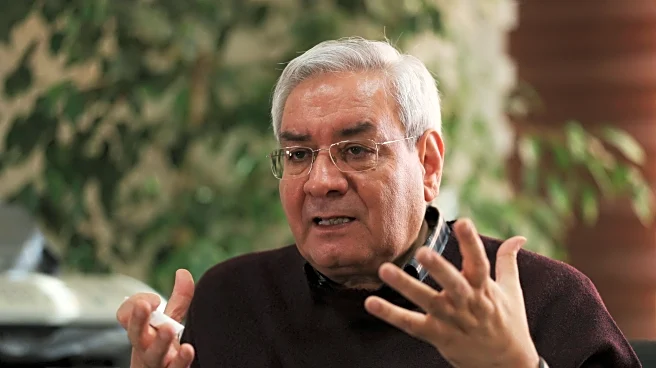What is the story about?
What's Happening?
The Anti-Defamation League (ADL) has decided to retire its Glossary of Extremism following criticism from prominent conservative figures, including Elon Musk. The glossary, which contained over 1,000 entries, was intended to provide information on extremist terms, symbols, groups, and tactics. However, it faced backlash for allegedly labeling certain Christian groups and organizations, such as Charlie Kirk's Turning Point USA (TPUSA), as extremist. The ADL acknowledged that some entries were outdated and had been misrepresented or misused. The decision to retire the glossary comes amid heightened political polarization and concerns over religious violence and free speech in the United States.
Why It's Important?
The retirement of the ADL's Glossary of Extremism is significant as it reflects the ongoing debate over the classification of extremist groups and the impact of such labels on public discourse. The glossary was a widely-cited resource, and its removal may affect how extremism is understood and addressed in the U.S. The controversy highlights the tension between combating hate and preserving free speech, particularly in the context of religious and political divides. The ADL's decision to explore new strategies for delivering information underscores the challenges faced by organizations in navigating these complex issues.
What's Next?
The ADL plans to develop new resources to share research and combat hate more effectively. This move signals a reassessment of its public education and anti-hate initiatives. The ongoing debate regarding the classification of extremist groups and the implications for public safety and free speech will likely continue. Stakeholders, including political leaders and civil society groups, may engage in discussions about the definitions of extremism and the broader impact on religious and political divides in the U.S.
Beyond the Headlines
The controversy surrounding the ADL's glossary raises ethical questions about the balance between identifying extremist ideologies and respecting religious beliefs. The backlash from conservative figures suggests a growing concern over perceived bias in the classification of extremism. This development may prompt further examination of how organizations define and address hate, potentially influencing long-term shifts in public policy and societal attitudes toward extremism.















